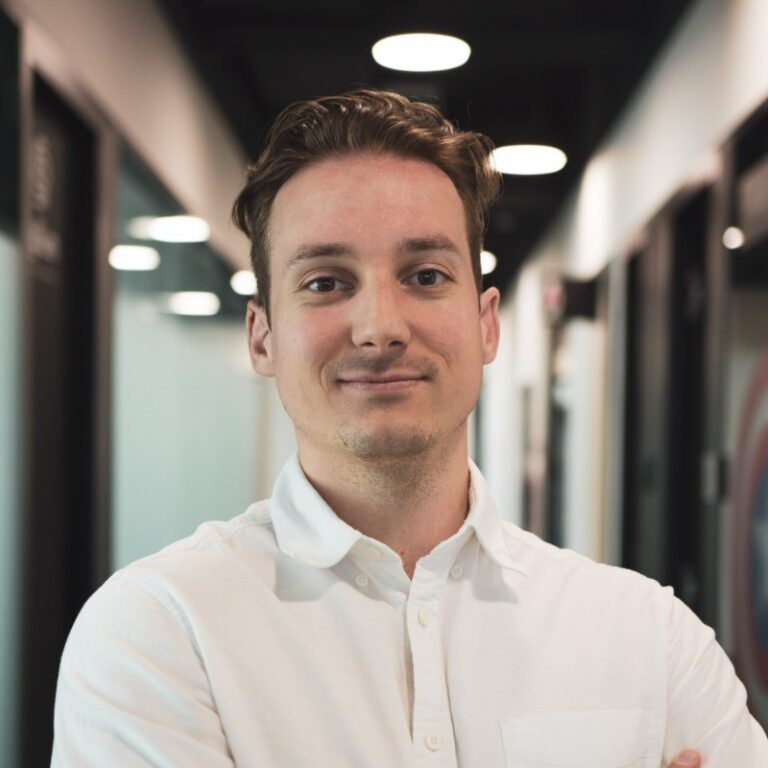EIT Morning Health Talks Bratislava – Entering EU Markets: What It Really Takes to Scale a Health Start-up
On October 8th, more than 40 innovators, founders, investors, and ecosystem builders gathered in Bratislava for the autumn edition of EIT Morning Health Talks, co-organized by Civitta Slovakia as the EIT Health RIS Representative. The session zoomed in on a critical but underdiscussed topic: What does it truly take to scale a healthcare innovation across the European Union?
The event unpacked the often invisible but essential hurdles standing between validated healthcare solutions and successful market entry — including compliance, CE-marking, cross-border strategy, and investor expectations.
From pilot to scaling: what needs to change?
The keynote by Daren Wilson, founder of Swiss venture studio HealthSeed and former GM of Roche Slovakia, set the tone with a sharp analysis of the “EU health innovation paradox” — strong talent and research, but slow commercialization. According to Daren, what holds back most start-ups isn’t a lack of innovation, but missing alignment with the realities of health system adoption, validation processes, and market access pathways.
Following the keynote, the start-up session brought voices from the front lines:
- Andrea Ancona of UCareMedical showcased a clinically integrated AI tool for ICU support, stressing the need for early EHR integration and hospital collaboration.
- Pavol Praženica from Medannot outlined the challenges of AI in radiology, including limited pilot access and complex documentation.
- Martin Majerník of MindMed addressed the nuances of scaling mental health innovation and digital therapeutics across different EU health systems.
Why validation is more than a checkbox
In a focused session on compliance and certification, Silvia Martins from FIVE Validation broke down the realities of CE-marking and MDR. Her key message?
“Too many start-ups treat validation as a milestone, but in MedTech, it’s a continuous process.”
Silvia highlighted the importance of early planning, structured documentation, and budgeting for regulatory pathways, especially for teams scaling across RIS regions.



What investors look for and what turns them away
The event concluded with a candid investor session featuring Jaroslav Ľupták (Neulogy Ventures) and Adam Ďurica (Zero One Hundred). They discussed how investors assess market readiness, warning that even strong clinical results can fall short if the business model, reimbursement plan, or team execution is unclear.
Jaroslav emphasized, “We don’t just look at where the product is today. We ask whether this team can survive five pivots and still get to market.”
Key takeaways:
- Compliance and clinical validation must begin early — not after product launch.
- Access to hospitals and pilot environments is still a major barrier across CEE.
- Investors want to see a clear plan for scale — not just locally, but across multiple EU markets.
- Regional collaboration on validation and funding infrastructure could help fill the commercialization gap.
- Innovation doesn’t stop at R&D. It begins at implementation.
Building an innovation ecosystem fit for scale
The October edition of EIT Morning Health Talks reflected a growing maturity in the Slovak healthcare innovation landscape. While many challenges remain, the event helped illuminate where real support is needed: validation, regulation, and investor-ready business models.
At Civitta, we remain committed to creating space for these conversations — and to building bridges between vision, execution, and impact.
If any questions about the EIT Morning Health Talks, contact:

Andrej Sňahničan